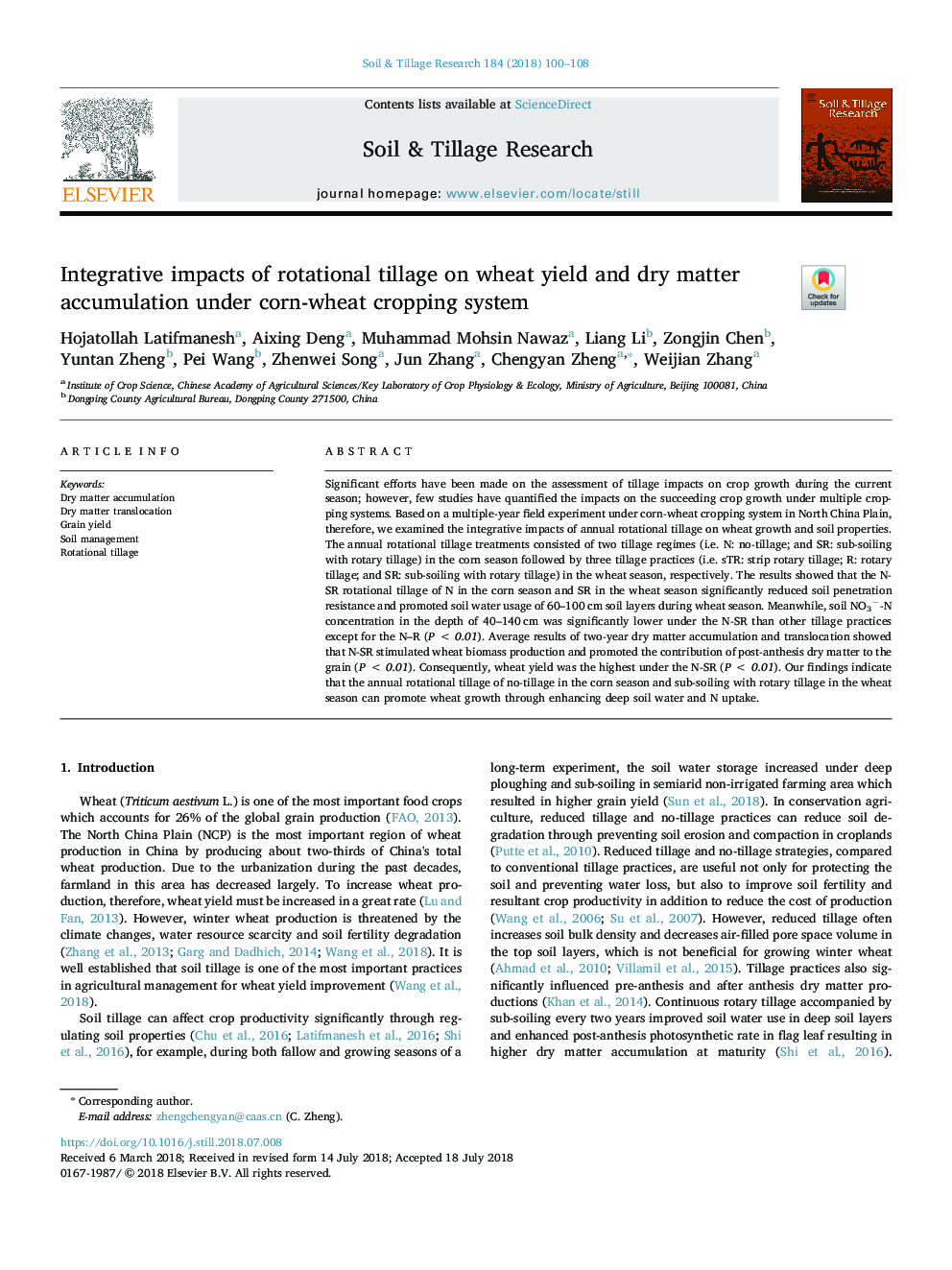| Article ID | Journal | Published Year | Pages | File Type |
|---|---|---|---|---|
| 6772898 | Soil and Tillage Research | 2018 | 9 Pages |
Abstract
Significant efforts have been made on the assessment of tillage impacts on crop growth during the current season; however, few studies have quantified the impacts on the succeeding crop growth under multiple cropping systems. Based on a multiple-year field experiment under corn-wheat cropping system in North China Plain, therefore, we examined the integrative impacts of annual rotational tillage on wheat growth and soil properties. The annual rotational tillage treatments consisted of two tillage regimes (i.e. N: no-tillage; and SR: sub-soiling with rotary tillage) in the corn season followed by three tillage practices (i.e. sTR: strip rotary tillage; R: rotary tillage; and SR: sub-soiling with rotary tillage) in the wheat season, respectively. The results showed that the N-SR rotational tillage of N in the corn season and SR in the wheat season significantly reduced soil penetration resistance and promoted soil water usage of 60-100âcm soil layers during wheat season. Meanwhile, soil NO3â-N concentration in the depth of 40-140âcm was significantly lower under the N-SR than other tillage practices except for the N-R (Pâ<â0.01). Average results of two-year dry matter accumulation and translocation showed that N-SR stimulated wheat biomass production and promoted the contribution of post-anthesis dry matter to the grain (Pâ<â0.01). Consequently, wheat yield was the highest under the N-SR (Pâ<â0.01). Our findings indicate that the annual rotational tillage of no-tillage in the corn season and sub-soiling with rotary tillage in the wheat season can promote wheat growth through enhancing deep soil water and N uptake.
Keywords
Related Topics
Physical Sciences and Engineering
Energy
Renewable Energy, Sustainability and the Environment
Authors
Hojatollah Latifmanesh, Aixing Deng, Muhammad Mohsin Nawaz, Liang Li, Zongjin Chen, Yuntan Zheng, Pei Wang, Zhenwei Song, Jun Zhang, Chengyan Zheng, Weijian Zhang,
